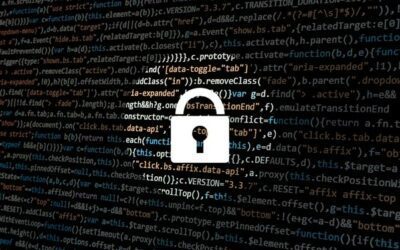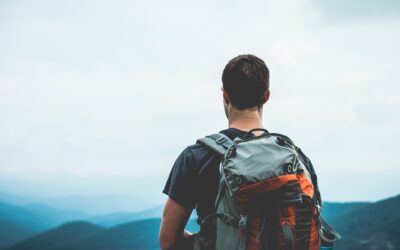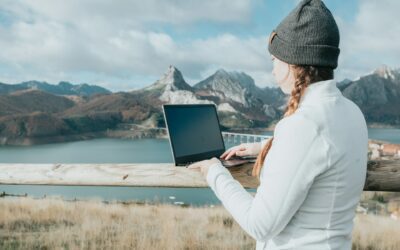|
|
Published in January 2024, Regula’s Identity Verification in a Globalized World Report interviewed 750 digital nomads and 750 fraud prevention decision-makers from around the world to better understand the interplay between digital nomadism and identity fraud.
There were a few key findings both for businesses and for digital nomads.
For Businesses
Businesses are struggling with verifying the identities of digital nomads because of the plethora of foreign identity documents that they use. Most businesses don’t have the systems in place yet to deal with many foreign documents.
Businesses also believe that this is leading to an increase in identity fraud using foreign documents. The report says that 80% of businesses noticed a recent increase in identity fraud and connected this directly with growing international business.
For Digital Nomads
Digital nomads have the reverse problem, as their documents are often not recognized when registering their identity. They also reported issues with renewing documents while traveling, and providing proof of address when they have no fixed abode.
However, while those are headaches, there are also more serious concerns around identity theft. Digital nomads tend to be at a higher risk because they need to verify their identity repeatedly on different systems as they move.
The biggest concerns for digital nomads are (1) their physical documents being lost or stolen, (2) their data being put at risk by verifying their identity on public Wi-Fi, and (3) their identity being stolen through work and travel scams.
How Can Digital Nomads Protect Their Identities?
We know the problems, but what are the solutions? While Regula suggests a variety of changes that businesses can make to their systems to better protect themselves and their clients, including digital nomads, what can digital nomads do personally to protect their identities?
Work Scams
The rise in remote working is an opportunity for scammers to take advantage of digital nomads and other remote workers, since contracts are often agreed without the security of a face-to-face meet-up. Platforms like Upwork and Freelancer are designed to mitigate this risk by acting as a trusted intermediary that can help with identity verification. Often clients and workers will make first contact on these platforms, and once trust has been built, go “offline” to avoid paying fees. This is a fairly reliable strategy.
But there has been a rise in fake freelancing platforms that promise access to clients and then require you to provide personal details and documents to register, but this is a scam to secure your personal details. How can this be avoided?
Always do your research before signing up for a platform. If it is legitimate, there will be a lot of other people using it and talking about it. Also, look at things like the website design and UI experience. Good platforms will prioritize these so it shouldn’t feel clunky. Also don’t agree to any excessive upfront fees, as fees are usually charged when work is secured. Also look for clear terms and conditions, privacy policies, and contact information, which are essential for legitimate sites.
Travel Scams
Travel scams are also a common problem for digital nomads who are booking travel, accommodation, and other travel-related items more often than most. They may also be booking in non-traditional ways to secure longer-term accommodation at better prices.
A common scam is booking Airbnbs long-term off-platform, and then finding that the accommodation is not available or not as promised. If you are looking to do this, it is always recommended to book a short Airbnb stay first, and then negotiate with the landlord after you have met them and built trust.
Protecting against this kind of activity is similar to protecting against work fraud. Research platforms before you use them. Only take relationships offline when you have had a chance to build a relationship with the other party and build trust. Be cautious when you are asked for excessive information, such as credit card information, or large upfront payments.
Where possible, make purchases on credit cards that have protection to cover fraudulent activity.
Public Wi-Fi Scams
The risks of using public Wi-Fi have been well-known for years. It is not challenging for both public Wi-Fi providers and users to monitor your activity and steal any personal data that you may share on the network. This can also be a risk when you are staying in accommodation where Wi-Fi is provided.
It is relatively easy to protect yourself by using a reliable VPN to encrypt your data and stop others from monitoring your online activity.
You can read our guide to the best VPNs for digital nomads and more detailed information about why you need one in our VPN article.
Other Online Scams
There are so many online scams out there that almost anyone can fall prey to them. It sometimes just requires clicking on the wrong link or trying to download what looks like a legitimate attachment. This can open doors into your devices that pit your identity at high risk.
The advice for digital nomads is not different than for anyone else, except that it is perhaps even more important. In addition to using a VPN remember to:
- Use strong and unique passwords for all your accounts, including things like social media and Netflix. These are often linked to other accounts, and don’t forget that Netflix has your payment details.
- Enable two-factor authentication whenever possible.
- Only share your personal information when it is absolutely necessary and via platforms that you have researched and trust.
- Always check details like the URL and site layout before submitting information, even for companies that you trust, as duplicate websites are a common scan.
- Regularly update your devices to patch security issues and vulnerabilities.
- Never respond to unsolicited requests for information via email. Legitimate companies will direct you to go to their secure website and log in to provide this type of information.
Physical Protection
As well as protecting yourself when you log into the worldwide web, it is important to protect your physical identity credentials, such as your passport, and your devices.
All your devices should be password protected and you should have the ability to track and wipe them remotely. This service is often free as long as you enable it on your device.
Protect yourself from the headache of losing important work or digital documents by backing everything up to the cloud using services such as Google Drive, Dropbox, or One Drive that allow you to back up automatically.
You should also be vigilant when using your devices in public spaces and never leave your personal belongings unattended, no matter how safe a place “feels”. Also, consider who is looking over your shoulder to obtain things like passwords. A privacy screen can help prevent others from seeing what you are working on when you are in a public space.
Only carry the documents that you need with you. Leave your passport at home and instead take another form of photo ID and travel credit cards. Find a secure place to store your important documents when they aren’t in use.
If you are making a lot of visa applications, then you may have a lot of related paperwork lying around that contains valuable personal information. Store documents securely while needed and dispose of them properly when no longer needed, through shredding or burning.
If you are having important documents sent to you from abroad and you do not feel like your accommodation is a secure place to receive it, take advantage of post office holding services and collect your documents from there. You can also collect documents and packages directly from places like DL Express depots rather than having them delivered.
Minimum Requirements
The above, plus having decent travel and health insurance, is the minimum that a digital nomad should be doing to protect themselves while traveling. It may feel excessive to worry about all these things but remember that digital nomads are high risk. You share your information more often and are more likely to have to rely on people, companies, and systems that you don’t know to get things done.
In most cases, if you make good decisions when setting yourself up, you don’t have to worry about things later. Get the right insurance, set up you VPN to activate automatically, set up strong passwords and two factor authentication. Once they are in place, you don’t have to think about them much.
On top of this, it is being vigilant and thinking before your click. This is something that everyone should be doing as we all live more and more of our lives online.











